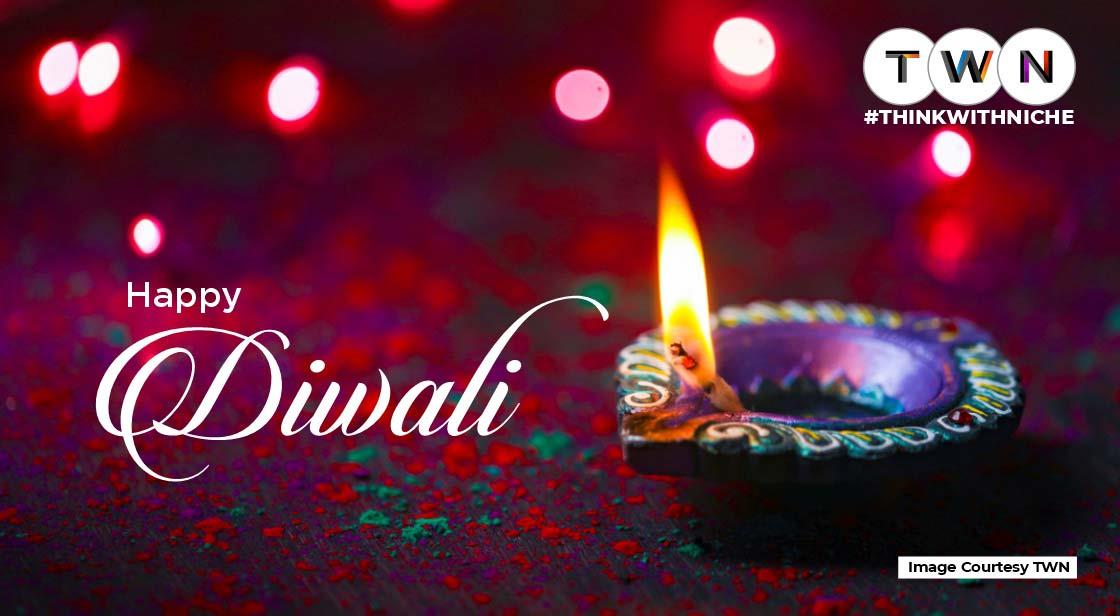
Diwali, also known as Dipawali, is India's biggest and most important holiday of the year. The festival's name comes from the row of clay lamps (deepa) that Indians light outside their homes to symbolise the inward light that protects against spiritual darkness. This festival is as important to Hindus as Christmas is to Christians. Diwali has evolved into a national holiday celebrated by both Hindus and non-Hindus.
Diwali symbolizes the spiritual victory of good over evil, light over darkness, and knowledge over ignorance. Diwali's lights represent a time to extinguish all of our evil thoughts and imaginations, to banish all sinister powers, and to give us the strength and energy to continue spreading goodwill throughout the rest of the year.
Days Celebrated On Diwali:
There are 5 days celebrated in Diwali
Dhanteras:
The first day of the five-day festival of lights, Dhanteras, is considered an auspicious day to buy and import new metal objects, particularly gold and silver. People worship Lord Kubera and Goddess Lakshmi on this day and make new purchases. On this day, only the goddess of wealth is honored. This year's commemoration will take place on October 22, 2022.
Naraka Chaturdashi Or Choti Diwali:
The second day, Naraka Chaturdasi, is also known as Choti Diwali. According to Hindu mythology, Lord Krishna fought in combat with the demon Narakasura and slew him. This year's celebration will take place on October 23, 2022.
Badi Diwali or Diwali:
The primary Diwali festival takes place on this day, and after killing Ravana, Lord Rama returned to Ayodhya. Lakshmi, the goddess of wealth, is revered by the people because she is supposed to provide luck and fortune.
This year this day will be observed on 24 October 2022.
Govardhan Puja:
A day after Diwali, Indians celebrate Govardhan Puja, a day dedicated to Lord Krishna's adoration. People believe that Lord Krishna raised the "Govardhan" mountain to protect the people of Mathura from Lord Indra. This year's commemoration will take place on October 25, 2022.
Bhaidooj:
The final and most important day is Bhai Dooj or Bhau Beej, which honors the special bond between brothers and sisters. It is celebrated on the second day of the lunar calendar's Shukla Paksha, just like Rakshabandhan. This year's celebration will take place on October 26, 2022.
How Is Diwali Celebrated?
Diwali celebrations frequently included the lighting of diyas (inside and outside dwellings), ornate rangoli designs, and fireworks. Diwali frequently elicits pleasant emotions such as pleasure and joy. Food is important in the occasion, as it is in most holidays around the world, particularly specialities like barfi and jalebi (fried bread soaked in syrup) (a fudge made with condensed milk and other flavours like pistachio).
Why is Diwali Celebrated?
Every religion commemorates a distinct Diwali mythology and historical event. In one of the major Hindu mythology, Diwali represents the day Lord Rama, his wife Sita Devi, and his brother Lakshmana return to their native nation after 14 years of exile. After Rama slew Ravana, the demon king, the villagers lit a path for him. Reenactments of this story are part of numerous celebrations around the world.
Diwali is also associated with the day Lord Krishna defeated the wicked Narakasura and set the inhabitants of his kingdom free, according to Hindu legend. After defeating the demon, Lord Krishna declared it a joyful day. People in some parts of India celebrate by burning effigies of the demon kings from both stories.
People also honor the Hindu goddess Lakshmi during Diwali. The romantic Diwali story goes that on the eve of Diwali, the goddess of prosperity, wealth, and fertility married Lord Vishnu, one of Hinduism's most adored deities.
In several cultures, Diwali coincides with harvest and new year festivals. Whatever Diwali story you celebrate, the day is always one of new beginnings and the triumph of light over darkness.
Fire Crackers And Their Effects On the Environment:
Bring pleasure, not disease, into your home this Diwali. Diwali is a season of great celebration and joy. Diwali is a light holiday, but in recent years, it has become more of a fireworks festival than a light festival. Today, Diwali celebrations are considered incomplete without the usage of firecrackers, which, although briefly lighting up the entire sky, have negative impacts on both the environment and human health. Because of firecrackers, dust and other impurities are more abundant in the air. Following the fire, dust and pollutants comprising elements such as sulphur, zinc, copper, and salt begin to accumulate in exposed locations, where they begin to affect our environment and maybe endanger our health.
Tags:
importance of diwali, how is diwali celebrated, why is diwali celebrated
Read This Full ARTICLE, Click Here


Comments
Post a Comment